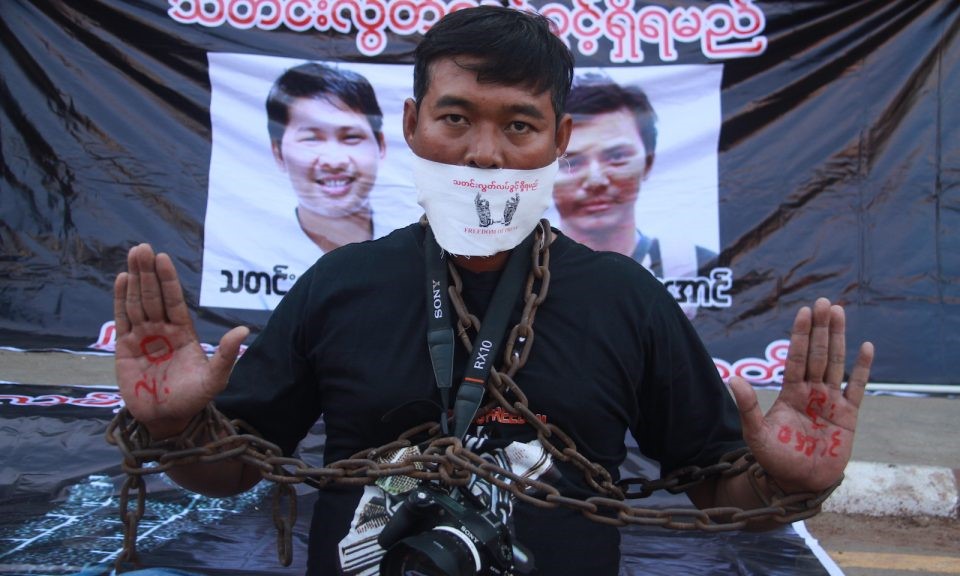ELIZABETH SOELISTIO WRITES – The freedom of the press in Myanmar is in a questionable state. Despite talk of a transitioning democracy, it is unclear whether human rights, such as freedom of the press, will receive the reform needed to become fully democratized.
Lau Hon Meng and Mok Choy Lin, a Singaporean cameraman and Malaysian journalist, were arrested in late October for flying a drone near Myanmar’s Parliament building in the capital, Naypyidaw. This arrest also included a local journalist Aung Naing Soe, who was interpreting for them, and their driver, Hla Tin.
The group was charged for threatening national security and filming unauthorized video content over the Parliament building, in addition to an extra charge of immigration offense. All four individuals served a two-month sentence, while facing further charges for importing the drone.
The judge on the case also charged the journalists with violation of the 1934 Burma Aircraft Act, which carries a maximum sentence of three months. Myanmar has strict laws for buying and flying drones in public. These laws include procedures such as contacting the aviation authority to get a permit, and not flying the drone near military or restricted areas.
Although all the charges have been dropped with cooperation from Singapore and Malaysian embassies, the initial arrest questions the freedom journalists have when doing their job.
Reuters reporters were also arrested in Myanmar, accused of trying to illegally obtain official documents that were given to them by a pair of police officers. Wa Lone and Kyaw Soe Oo work for Reuters and were covering the military crackdown in Rakhine state, where thousands of Rohingya Muslims have fled since August.
The two Reuters journalists are charged with breaching Myanmar’s Official Secrets Act, which dates back to 1923 under the British rule. Under this charge, Wa Lone and Kyaw Soe Oo could face up to 14 years in prison.
The pair of police officers were later arrested with no follow-up or explanations from the police department. The State media reported that the documents were a trap set by police officers who had been serving in Maungdaw and Buthidaung in the Rakhine State.
Former U.S. President Bill Clinton recently tweeted, “A free press is critical to a free society – the detention of journalists anywhere is unacceptable.”
But, it seems that Myanmar isn’t ready to relinquish control and deliver its promise of complete democracy to the media and press quite yet.
Edward Parker, a contributor to The Diplomat based in Southeast Asia, reminds the importance of media, “The role of the media in shaping public opinion and holding political leaders accountable for policies and progress adds further importance to a free, fair and – non-’fake news’ media.”
If Myanmar genuinely desires to become a democracy, it is critical to give the media their deserved independence.

